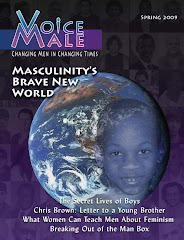by Rob Okun
Were he still alive, my father would have turned 101 on New Year’s Day. At least that’s when we would have celebrated his birthday. Accurate record-keeping was rare in the village he came from in Pinsk, Russia. Growing up, Dad said his birthday may have been in mid-November since he was named Joseph, after the biblical figure whose Torah portion is chanted in synagogues at that time of year.
You may recall from Sunday school — or the hit musical Joseph and His Technicolor Dreamcoat — that Joseph was sold to a neighboring tribe by his brothers, jealous that he was their father’s favorite. His brothers also didn’t like the dreams Joseph had suggesting, that he, their much younger brother, was destined to lead them. When he went to find his shepherd-brothers tending their flock, they stripped him of his rainbow-colored tunic, threw him in a pit and prepared to slaughter him. Persuaded by another brother not to kill him, they settled on selling him to the Ishmaelites for 20 pieces of silver. The betrayal Joseph experienced may have been more dramatic than many of us have experienced — or have heard of — but his story still serves as a cautionary tale. Indeed, during his lifetime, my father and his family were betrayed by one of his brothers.
Biblical Joseph, although he arrived in Egypt as a slave, landed on his feet, eventually becoming an indispensable advisor to the Pharoah, especially valued for his ability to interpret dreams. My father, who arrived in the U.S. as boy, had a similar gift, not so much for dream work but for what’s essential to that work — understanding people and human nature. He knew that peoples’ fears and uncertainties about the future sometimes clouded their best thinking. He understood that sometimes longtime friends and allies harbor secret agendas. Nevertheless, he always did his utmost to find the best in everyone, along the way reaching for his highest self and standing for that possibilty in others. That’s one of the lessons I’ve learned from his life.
My father was patient, rarely raised his voice, and spoke so lovingly and respectfully to and about his wife, my mother, that without expressly lecturing about it, he modeled for his children both how to act toward women and how to be a man. He was unusually gentle — quiet, steady, calm under pressure, an effective leader. He was a devoted father, operated a successful business, and was honorary life president of our temple. He paid tribute to the dead by overseeing burials and maintaining the cemetery grounds. Growing up I got used to hearing the funeral director’s voice on the other end of the phone asking, “Is your father there?” Today, a hundred years after his birth and 20 years after his death, he remains my role model. I feel his presence in my life, stronger than ever.
In my work with men over the years, both at the Men’s Resource Center for Change and in my private counseling practice, I’ve always carried his quiet, steady love. I’ve witnessed the tearful yearning adult sons have for the soothing love a healthy relationship with their fathers can bring. Our work, which encourages men to cultivate their softer, gentler sides — to push past their resistance to maintaining the tough guise of conventional masculinity — invites men to open to healing the wounds of the past. MRC tries to show men how to not let those wounds obscure their vision in the present. Yet for some, it remains and arduous, perilous journey. They may appear to authentically express a gentler, humanized masculinity but are too bound up in their old hurts and the old ways to fully get there. But since a key characteristic of men’s work is that it’s an ongoing, lifelong process, a journey worth continuing.
We don’t know what Joseph’s brothers talked about on their way home after selling him into slavery. While one of his brothers went back (too late) to free him, the rest were too blind to revisit what they had done. Undoubtedly they didn’t ask themselves: “How can we uncover a more collaborative brand of masculinity when the old ways of competitive, manipulative masculinity still holds sway over us?” Today, all these generations later, conventional manhood’s grip still seeks to control our lives.
In our efforts to recognize, to understand, and to cultivate humanized masculinity, it’s important to learn to discern when that part of us is authentic and when it is pretense. This is critically important to any men’s work, essential to the process. We all need role models, our Josephs, to offer us a handhold in life. For the Biblical Joseph and for my father, it didn’t matter how heavy or how many colors adorned their coats since nothing could obscure their understanding of an open heart. May that someday be true for the rest of us.
Wednesday, March 11, 2009
Subscribe to:
Post Comments (Atom)




No comments:
Post a Comment